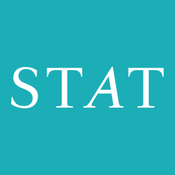 This post originally appeared on MySanAntonio.com on March 22, 2019. One threat stems from the Trump administration, which has suggested weakening the so-called protected classes provision in Medicare “Part D.” Medicare’s Part D drug benefit has enabled seniors to purchase subsidized prescription coverage from private insurers. Part D regulations require every plan to cover all medications in six protected classes of therapies, including anticonvulsants, antidepressants, antineoplastics, antipsychotics, antiretrovirals, and immunosuppressants. This protection ensures that older adults who battle cancer, HIV/AIDS, depression, and other serious diseases have a full range of treatment options.
2 Comments
 This post originally appeared in the Montgomery Herald on March 21, 2019. Since leaving the U.S. House of Representatives in 2011, I've dedicated my professional life to fighting for full implementation and enforcement of the Mental Health Parity and Addiction Equity Act of 2008 – a law I had the honor of authoring with Congressional colleagues in true bipartisan spirit.The law requires most insurers to cover illnesses of the brain, such as depression or addiction, no more restrictively than illnesses of the body, such as diabetes or cancer. MHPAEA was written to ensure equitable prescription drug coverage for mental health conditions. Equitable drug coverage means that we are able to work with our doctors to try different prescription medications until we find what works. The process can take months, sometimes years. Having more choices means having more opportunities to get well.  This post originally appeared in the Richmond Register on March 25, 2019. The Trump administration is poised to undermine seniors' access to lifesaving medications. It recently proposed a rule that would weaken patient protections within Medicare's "Part D" prescription drug benefit. Part D drug plans are required to cover all drugs in six "protected classes" of medicines. This ensures that seniors have widespread access to drugs used to treat cancer, depression, HIV, and more.  This post originally appeared in Inside Health Policy on March 14, 2019. A bipartisan group of more than 70 House lawmakers wants CMS to withdraw a proposal to weaken coverage protections in six classes of drugs, according to a March 13 letter to HHS Secretary Alex Azar. Patient and provider groups have been highly critical of the Trump administration’s proposal to let insurers use step therapy and prior authorization for drugs in those drug classes, and now CMS is feeling the pressure from Congress. The letter focuses on HIV drugs, which is the only class of drugs among the six that treats an infectious disease, but the lawmakers make clear they don’t want to weaken protections in any of the classes.  This post originally appeared in STAT News' "DC Diagnosis" Newsletter on Tuesday, March 19 2019. HHS Secretary Alex Azar trudged up to Capitol Hill three separate times last week, and he got some tough but expected questions about Obamacare, the agency’s family separation policy, and myriad other hot-button health policy issues. But one line of questioning was striking — and surprisingly bipartisan: It concerned the agency’s idea of allowing private Medicare plans to not cover certain drugs that treat conditions like depression and HIV — drugs known as the so-called protected classes.  This post originally appeared in Targeted Oncology on March 15, 2019. "The healthcare community is still awaiting a response from the Centers for Medicare & Medicaid Services (CMS) to the opposition of the agency’s proposal to substantially revise the Medicare Part D protected drug classes. Protection of the 6 drug classes within the Part D prescription drug plan, which include antineoplastics such as chemotherapies, was instituted in 2006 to ensure that commercial health plan sponsors of the newly launched Medicare Part D program would make these drugs available to patients."  This post originally appeared in The St. Louis American on March 14, 2019. Recently, the Centers for Medicare and Medicaid Services (CMS) proposed a troubling regulation that would weaken Medicare Part D, the federal program that helps 45 million American seniors and people with disabilities afford prescription drugs. Part D is unique among government programs. The federal government allows people to purchase coverage from private insurers. The government subsidizes these plans but otherwise lets Medicare beneficiaries choose the coverage that's best for them.  In a letter to Centers for Medicare and Medicaid Services (CMS) Administrator Seema Verma, a bipartisan group of 14 Senators — led by Sens. Marco Rubio (R-FL) and Kyrsten Sinema (D-AZ) — urged the agency to reconsider its proposed changes to Medicare’s six protected classes policy. The Senators emphasized that the protected classes serve as an essential patient safeguard for beneficiaries with complex medical conditions, noting that the policy has long enjoyed bipartisan support among lawmakers. “The proposed rule would allow Part D plans to limit access to critical medicines to patients in need of immunosuppressants, antidepressants, antipsychotics, anticonvulsants, antiretrovirals, and antineoplastic medicines, by permitting prior authorization or step therapy,” the letter states. “We urge CMS to reconsider this proposal that would risk the health of our most vulnerable beneficiaries. The letter in its entirety can accessed below.
 A bipartisan group of 73 House lawmakers — led by Reps. Barbara Lee (D-CA) and Will Hurd (R-TX) — penned a letter to Department of Health and Human Services (HHS) Secretary Alex Azar opposing changes to Medicare’s six protected classes policy. The lawmakers stressed that adding additional prior authorization and step therapy requirements could have detrimental effects to beneficiaries who deal with HIV, cancer, mental illness, and other serious health conditions. “…We are concerned that these provisions of the proposed rule will have reverberating effects for patients suffering from multiple conditions that are currently covered and exacerbate health disparities among poor and minority communities,” the letter states. “Considering the public health implications of the proposed changes to Part D protected classes related to prior authorization and step therapies, we respectfully request that you withdraw the relevant portions of the rule.” The letter in its entirety can be accessed below.
 This post originally appeared in the Chagrin Valley Today on March 7, 2019. The Trump administration is poised to undermine senior citizens’ access to lifesaving medications. It recently proposed a rule that would weaken patient protections within Medicare’s “Part D” prescription drug benefit. Part D drug plans are required to cover all drugs in six “protected classes” of medicines. This ensures that seniors have widespread access to drugs used to treat cancer, depression, HIV and more.The administration wants to allow insurers to stop covering some drugs in the six protected classes. This change could result in poorer health outcomes for Medicare’s most vulnerable beneficiaries – and inflate health spending in the longrun. |
AuthorWrite something about yourself. No need to be fancy, just an overview. Archives
September 2023
Categories |
||||||||||||
Learn more |
What's New? |
|
